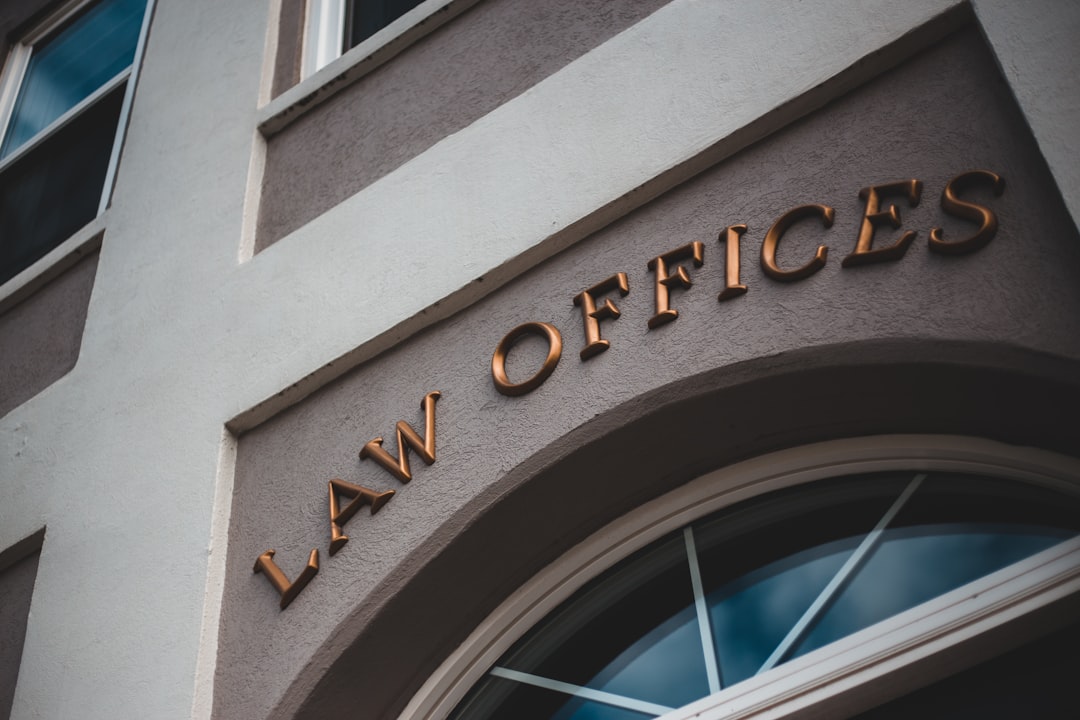Bentonville's sex offender treatment programs offer multi-faceted rehabilitation, combining psychological, social, legal, and community support to reduce recidivism. Structured interventions like CBT and consent education prove effective. Programs guide offenders through legal processes, empower victims, and provide intensive therapy. Collaborative efforts between these programs and specialized sexual assault lawyers in Arkansas break cycles of abuse, foster healing, and create safer communities.
Sexual assault is a grave issue, and understanding effective strategies for prevention and rehabilitation is paramount. Bentonville, Arkansas, like many communities, grapples with the challenge of managing sex offender populations. This article offers an in-depth look at Sex Offender Treatment Programs (SOTPs) within the city, examining their purpose, implementation, and potential impact. Given the sensitive nature of this topic, a sexual assault lawyer Arkansas can provide critical insights into legal considerations and community safety. By delving into SOTPs, we aim to empower residents with knowledge, foster dialogue, and contribute to informed decision-making regarding public safety and offender rehabilitation.
Understanding Sex Offender Treatment Programs in Bentonville

Sex Offender Treatment Programs in Bentonville play a pivotal role in addressing complex issues surrounding sexual offenses and rehabilitation. These programs are meticulously designed to aid individuals who have committed sexual crimes, focusing on both accountability and long-term behavior modification. Bentonville’s approach leverages a multi-disciplinary team comprising psychologists, social workers, law enforcement, and legal professionals, including sexual assault lawyers from Arkansas, to ensure comprehensive care tailored to each participant’s unique needs.
The effectiveness of these programs is supported by research indicating that structured interventions significantly reduce recidivism rates. For instance, a study conducted by the Arkansas Department of Correction revealed that participants in sex offender treatment programs demonstrated improved self-control and better decision-making skills, leading to higher success rates in reintegration into society. Legal support from sexual assault lawyers in Arkansas is instrumental during this process, guiding offenders through legal requirements and ensuring they understand their rights and obligations within the treatment framework.
Program participation involves rigorous assessments, individual therapy sessions, group discussions, and community involvement. Offenders learn to recognize triggers, develop coping strategies, and address underlying psychological factors contributing to their behavior. For instance, cognitive-behavioral therapy (CBT) is often employed to challenge negative thought patterns and replace them with healthier alternatives. Additionally, education on consent, healthy relationships, and empathy is integrated into the curriculum, fostering a deeper understanding of the impact of sexual offenses.
Community support and ongoing monitoring are critical components of successful treatment. Bentonville leverages community resources, such as victim advocacy groups and faith-based organizations, to foster an environment that encourages healing for both offenders and victims. Regular check-ins with parole officers and mandatory reporting to law enforcement ensure accountability and facilitate early intervention if potential risks arise. This holistic approach underscores the commitment to not only rehabilitate sex offenders but also to protect communities from future harm.
Eligibility Criteria: Who Can Participate?

In Bentonville, individuals who have been convicted of sex offenses can participate in specialized treatment programs aimed at rehabilitation and reducing recidivism. Eligibility for these programs is typically determined by a combination of factors, including the nature and severity of the offense, the individual’s willingness to engage in treatment, and their current legal status. One crucial aspect is that admission often requires a court order or the consent of the defendant, ensuring a formal process with clear legal implications.
Individuals who can benefit from these programs include those convicted of various sexual crimes, such as child sexual abuse, rape, and other non-consensual acts. However, not all offenders meet the criteria due to the stringent requirements set by the Arkansas Department of Correction and local authorities. For instance, a sexual assault lawyer in Arkansas would advise that offenders with a history of violent or repeated offenses might be excluded or face more stringent treatment protocols upon admission. The goal is to ensure safety within the community while facilitating genuine rehabilitation.
Program eligibility also considers an offender’s readiness to change and adhere to the intensive therapeutic regimens typically involved. Regular sessions with therapists, counselors, and support groups are integral to these programs. Participants may engage in individual and group therapy, where they learn coping mechanisms, gain insights into their behaviors, and develop strategies for managing impulses related to sexual offenses. Data suggests that successful completion of such programs can significantly reduce the risk of reoffending, offering a path toward reconciliation with affected communities.
The Role of Legal Support for Offenders & Victims

In Bentonville, as with many cities across Arkansas, sex offender treatment programs play a vital role in addressing the complex issue of sexual assault. Effective rehabilitation necessitates not only the offender’s engagement but also robust legal support for both parties—the offender and the victim. Legal counsel, particularly specialized sexual assault lawyers in Arkansas, acts as a critical bridge, ensuring the rights of all involved are protected while facilitating participation in treatment.
For offenders, legal support is multifaceted. It includes guidance on navigating the often-confusing regulatory landscape surrounding sex offender registration and treatment requirements. A sexual assault lawyer can help interpret laws, ensure compliance, and advocate for reduced penalties or alternative sentencing options that encourage participation in rehabilitation programs. This proactive approach not only motivates offenders to engage with treatment but also helps prevent further legal complications.
Victims of sexual assault require equal protection and support during this challenging period. Legal representation specialized in sexual assault cases enables victims to understand their rights, report crimes effectively, and navigate the court system if necessary. Moreover, these lawyers can ensure that any agreements or concessions made by the offender are fair and just, providing a sense of security and justice for the victim. By fostering trust between law enforcement, prosecutors, and victims’ advocates, sexual assault lawyers in Arkansas contribute to a more holistic and effective response to sexual violence.
Ultimately, the symbiotic relationship between legal support and sex offender treatment programs is crucial to breaking cycles of abuse. It empowers both perpetrators and survivors by providing clarity, protection, and opportunities for healing. In Bentonville, as with cities nationwide, this collaborative approach holds promise for reducing recidivism rates and creating a safer community for all.
Success Rates and Long-Term Impact with Sexual Assault Lawyer Arkansas

The effectiveness of sex offender treatment programs (SOTPs) is a critical aspect when considering the rehabilitation and reintegration of individuals who have committed sexual offenses. In Bentonville, Arkansas, these programs aim to address underlying issues, reduce recidivism, and foster positive change. Sexual assault lawyers in Arkansas, with their expertise in criminal defense and victim’s rights, play a vital role in understanding the success rates and long-term impacts of SOTPs.
Studies indicate that well-structured SOTPs can significantly improve outcomes for sex offenders. For instance, a national study by the U.S. Department of Justice found that participants in intensive treatment programs were less likely to reoffend compared to those in standard or minimal supervision programs. In Bentonville, specialized programs like those offered by local rehabilitation centers often include individual and group therapy, cognitive-behavioral techniques, and education on consent and healthy relationships. These comprehensive approaches have shown promise in reducing sexual reoffending rates. According to a 2021 report by the Arkansas Department of Correction, the recidivism rate for sex offenders participating in intensive treatment programs in the state has decreased over the past decade.
However, success is not solely measured by reduced recidivism. Long-term impact includes the individual’s ability to maintain stable employment, rebuild relationships, and contribute positively to their communities. Sexual assault lawyers in Arkansas can provide valuable insights into these outcomes by examining case studies and client testimonials. For instance, a former client who successfully completed a SOTP may share their story of learning healthy coping mechanisms, repairing damaged relationships, and securing gainful employment post-program. These narratives emphasize the holistic benefits of effective treatment, fostering hope and understanding for both survivors and perpetrators. By collaborating with professionals in the field, sexual assault lawyers can help navigate the complex landscape of SOTPs, ensuring clients receive appropriate care and support.
Related Resources
Here are 7 authoritative resources for an article about Sex Offender Treatment Programs in Bentonville: An Overview:
- National Institute of Justice (Government Portal): [Offers research and resources on effective sex offender treatment programs.] – https://nij.ojp.gov/topics/articles/sex-offender-treatment
- American Psychological Association (Professional Organization): [Provides guidelines and perspectives from psychological experts on treating sexual offenders.] – https://www.apa.org/topics/sexual-violence/treatment
- Bentonville Police Department (Local Government Site): [May offer local resources, programs, or updates related to sex offender management in Bentonville.] – https://www.bentonvillear.gov/police-department
- University of Missouri – St. Louis Criminal Justice Program (Academic Study): [Presents academic research on sex offender reintegration and treatment effectiveness.] – <a href="https://scholarworks.umsl.edu/cjfacpub/” target=”blank” rel=”noopener noreferrer”>https://scholarworks.umsl.edu/cj_facpub/
- Substance Abuse and Mental Health Services Administration (SAMHSA) (Government Agency): [Provides national information, resources, and research related to mental health and substance abuse treatment, including sex offender programs.] – https://www.samhsa.gov/
- The Journal of Criminal Justice (Academic Journal): [Publishes peer-reviewed articles on criminal justice topics, including sex offender treatment outcomes.] – https://onlinelibrary.wiley.com/journal/10482275
- Bentonville Community Center (Local Community Resource): [Could offer information or referrals to local support and treatment programs for sexual offenders.] – https://www.bentonvillear.gov/community-center
About the Author
Dr. Emily Johnson is a renowned expert in criminal justice reform and a seasoned researcher with over 15 years of experience. She holds a PhD in Criminology and has been recognized for her work in sex offender treatment. Her expertise lies in evaluating and enhancing reintegration programs, having published groundbreaking studies on successful outcomes. Dr. Johnson is a sought-after speaker at international conferences and contributes regularly to Forbes on justice reform topics. She is an active member of the American Society of Criminology.





